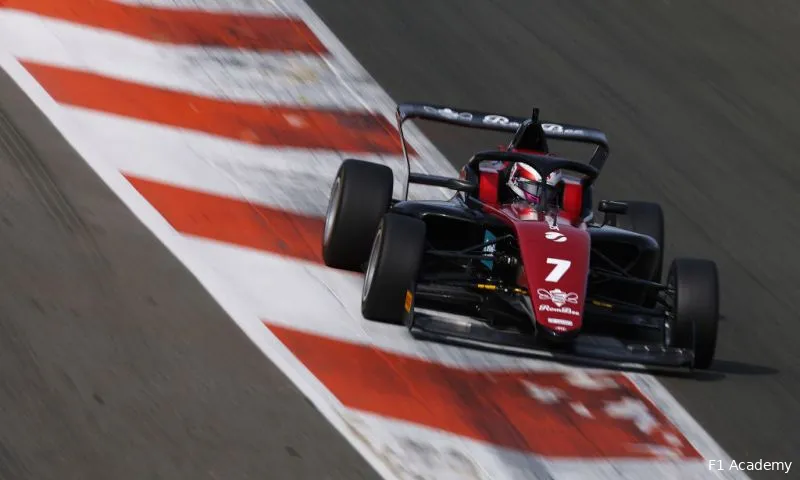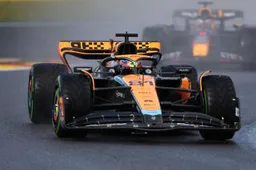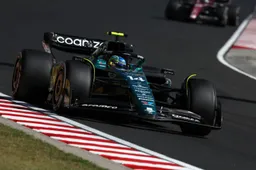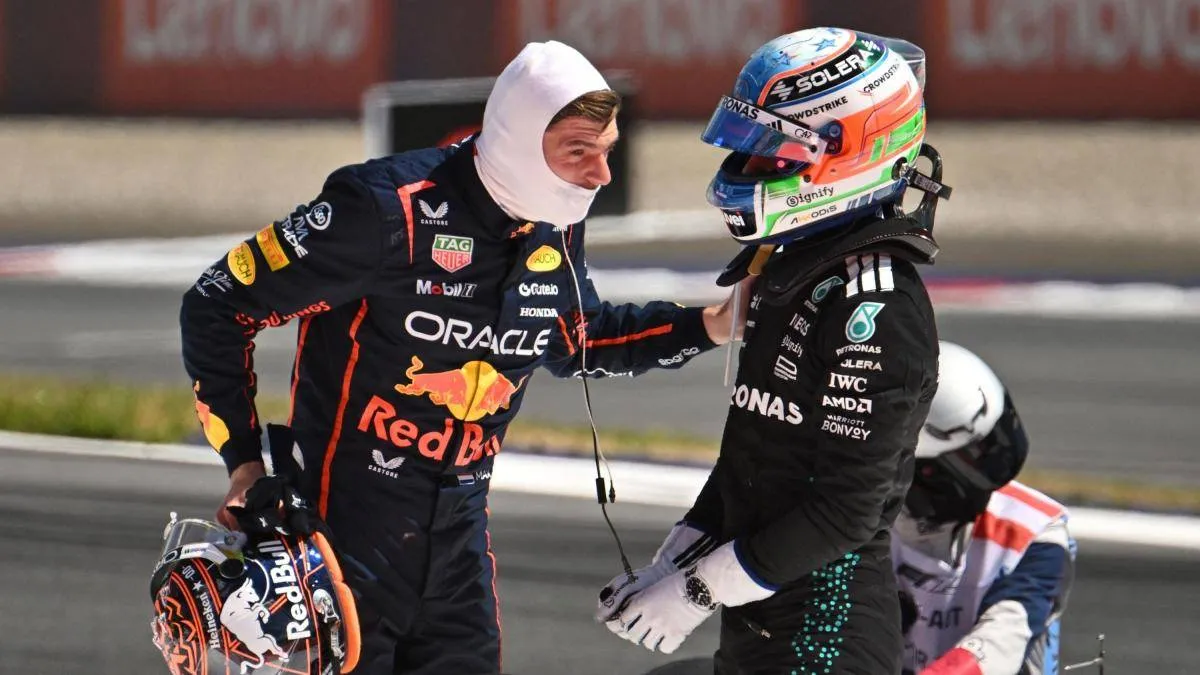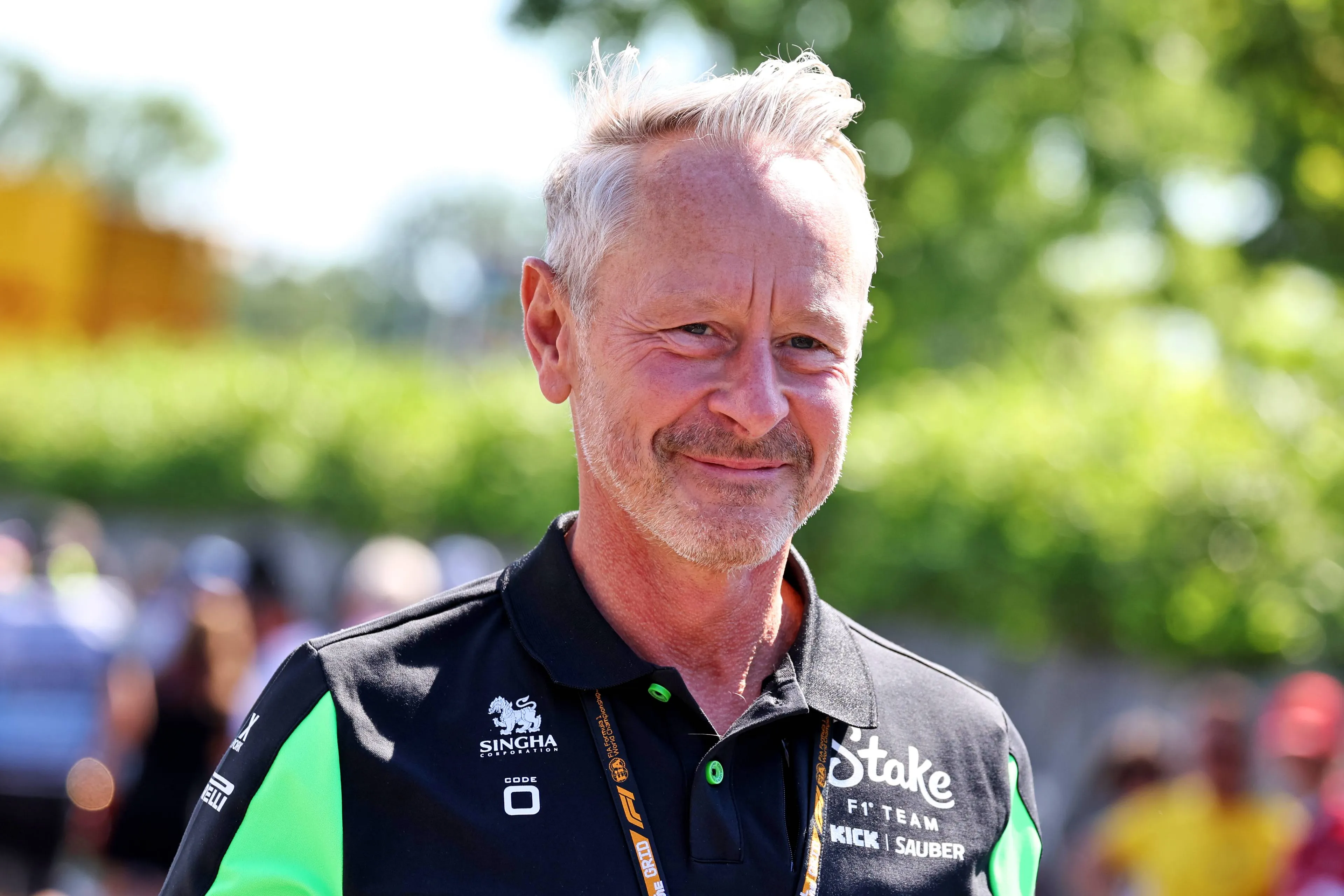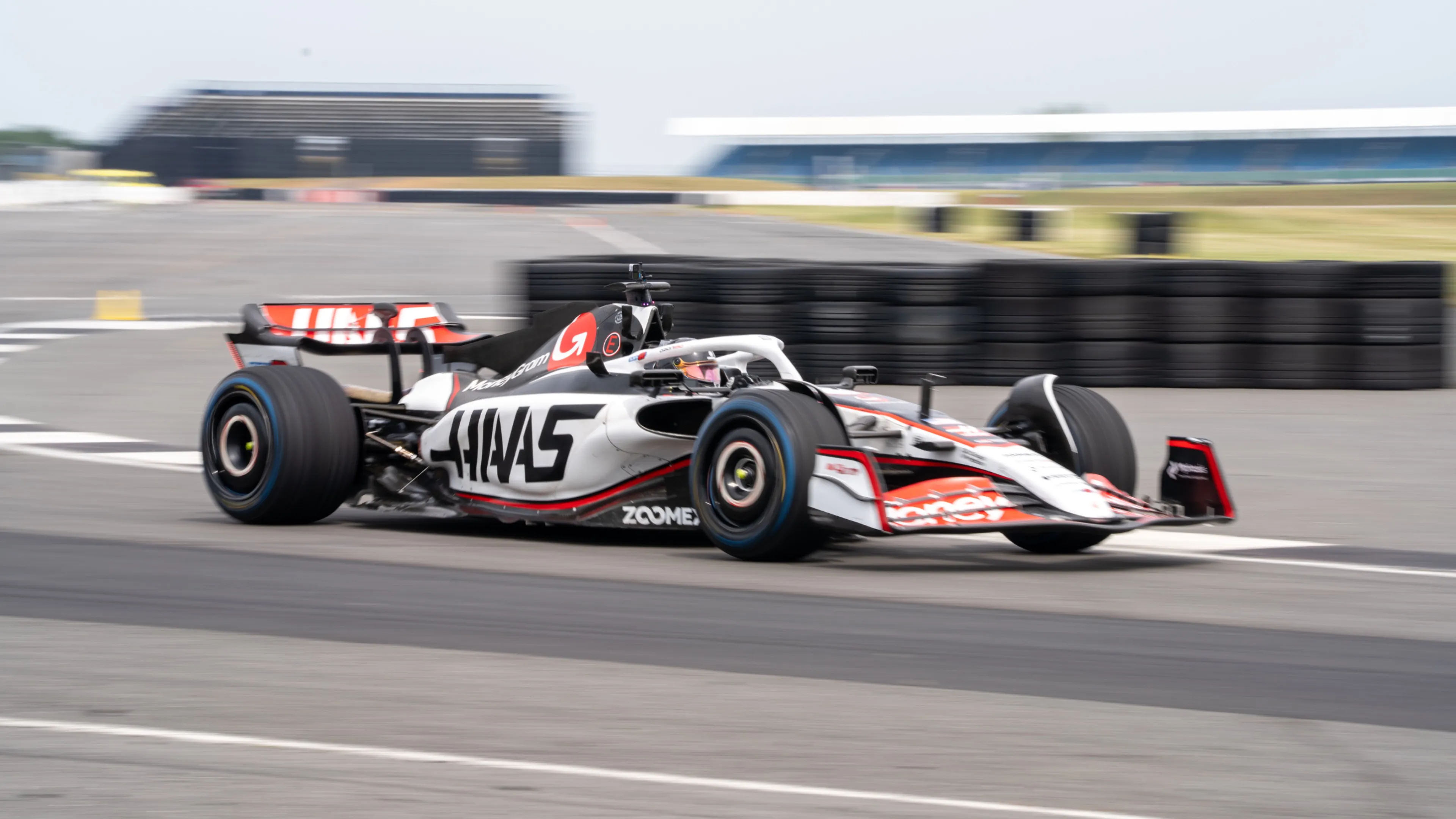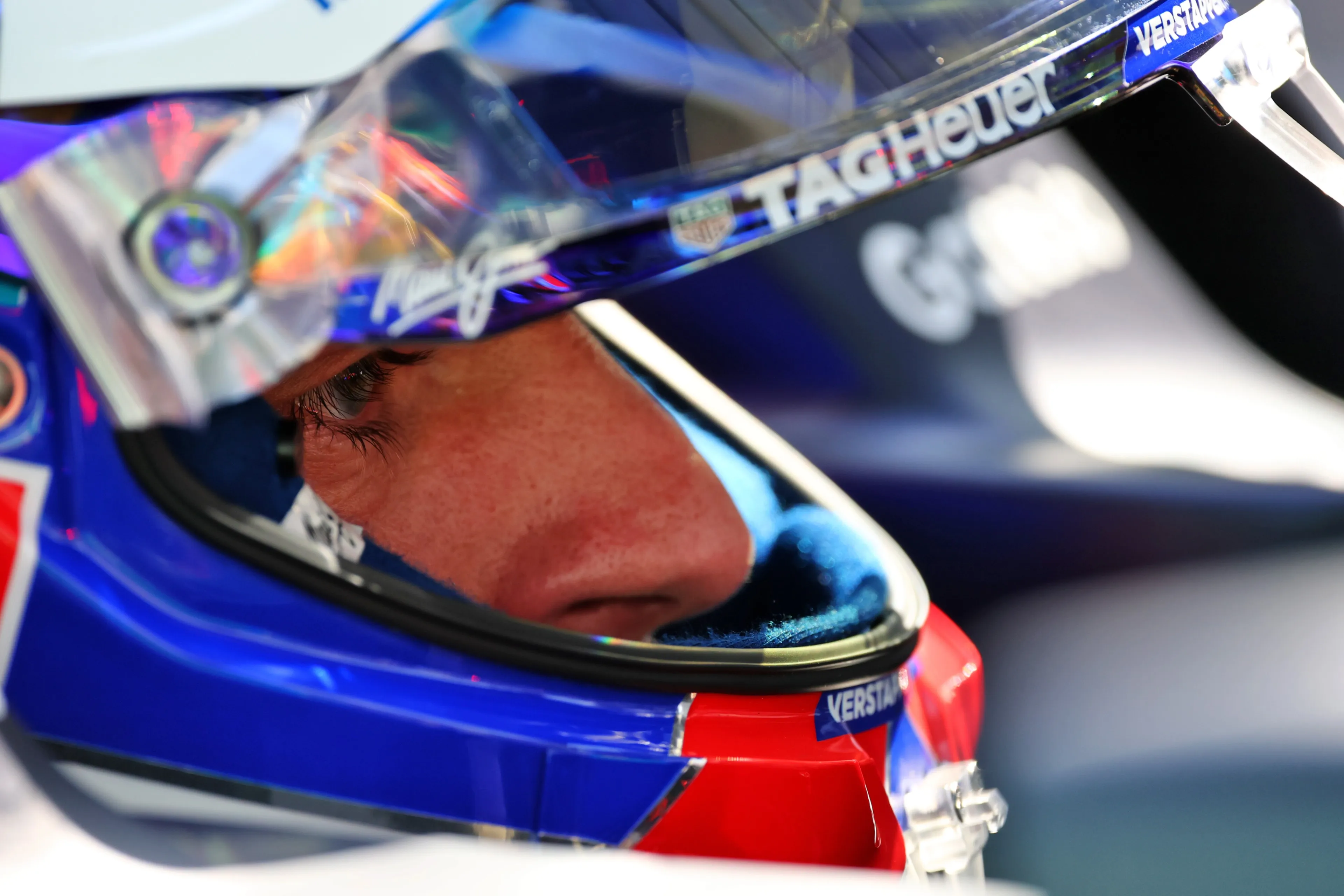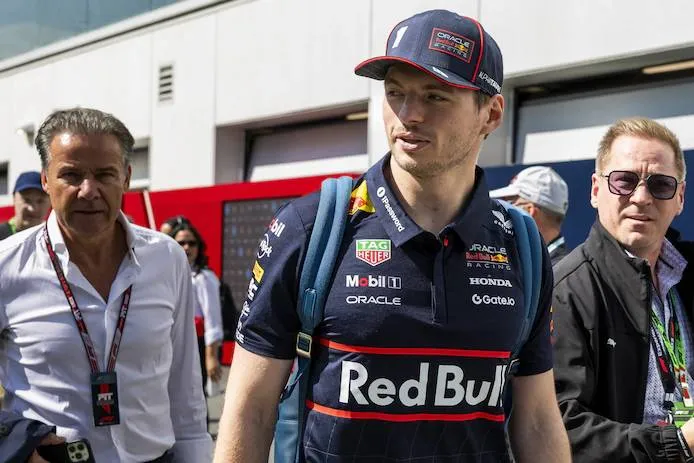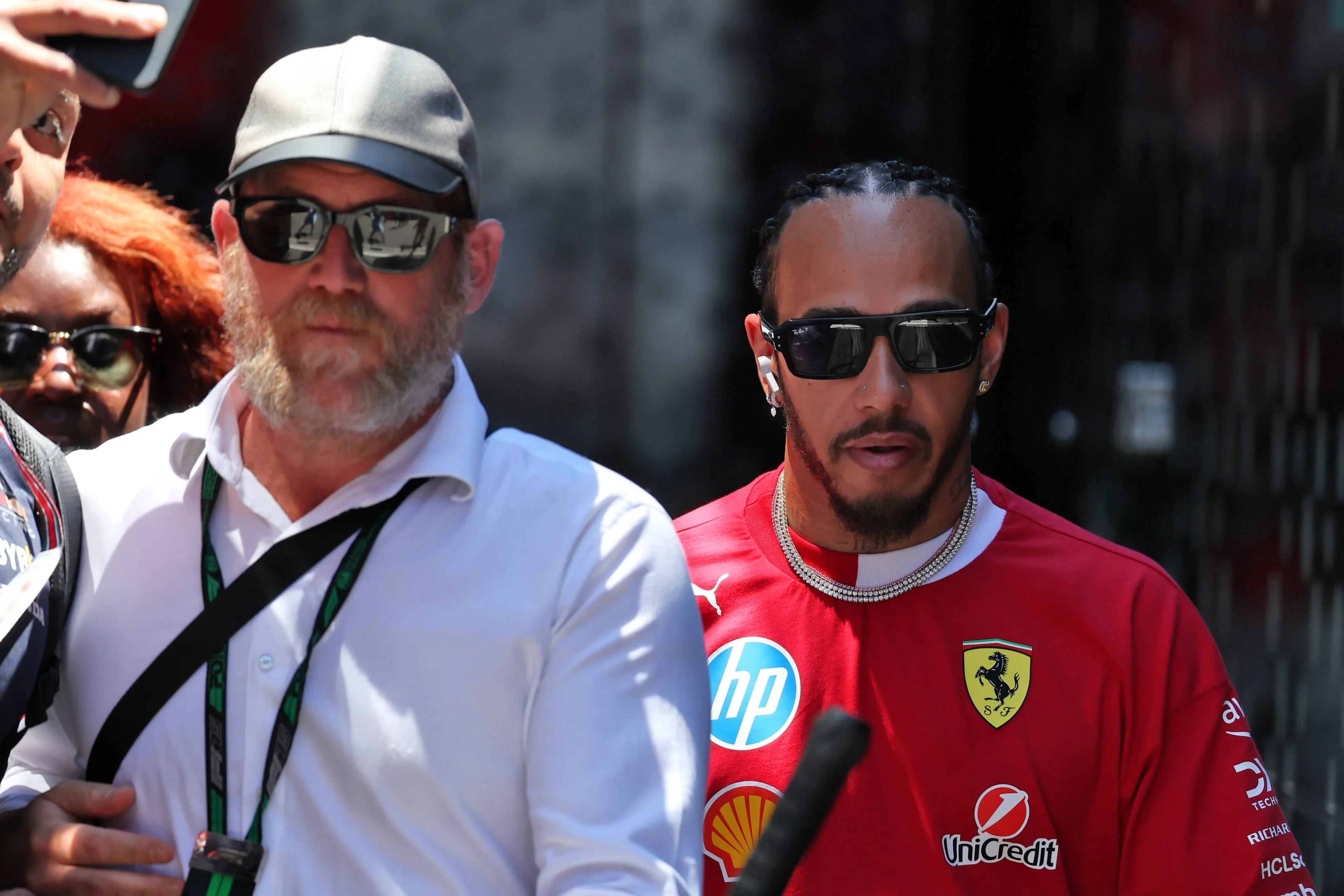F1 Academy's first season is almost over. The series is already a success, according to Delphine Biscaye, the Competition Manager of the series for female drivers. F1 Academy is preparing drivers to make the next step in their career, perhaps even to F1. A conversation about dreams, progression and the dire necessity of F1 Academy.
Suddenly, an eight-year-old girl and her parents stood in front of Biscaye in the paddock of the Le Castellet circuit in France during the weekend of the sixth round of F1 Academy. Having started karting at the beginning of the year, the girl wanted to take a look in the paddock of the step-up class for talented female drivers. "She was so passionate," Biscaye told GPblog in an exclusive interview. She is one of the driving forces behind the racing series.
"They put her in the car, and you can see how it helps her. To see girls of 16-18 doing her dream will keep her karting. And the next morning, she was going to the karting in the Paul Ricard small karting centre. And she had a session, and then she came back and said, 'I've improved my time of this, and I've beaten this. And I'm quicker than the 11 years old boys.' And you can see already how she's got the spark. She really wants to go there, and she sees them, and she says, 'OK. When I'm 16, can I come?' I said, 'Maybe now, we don't know. Maybe we'll see you when you're 16.' For girls, it will be something that they can say, 'OK, that exists, so I can go there. And if I go there, I can go further.' And that's really the goal of F1 Academy."
"They put her in the car, and you can see how it helps her. To see girls of 16-18 doing her dream will keep her karting. And the next morning, she was going to the karting in the Paul Ricard small karting centre. And she had a session, and then she came back and said, 'I've improved my time of this, and I've beaten this. And I'm quicker than the 11 years old boys.' And you can see already how she's got the spark. She really wants to go there, and she sees them, and she says, 'OK. When I'm 16, can I come?' I said, 'Maybe now, we don't know. Maybe we'll see you when you're 16.' For girls, it will be something that they can say, 'OK, that exists, so I can go there. And if I go there, I can go further.' And that's really the goal of F1 Academy."
Obstacles for female talents
So the question is whether F1 Academy is already a success? The answer, according to Biscaye, is a resounding yes. Although she also regularly hears: 'Why does there have to be a special series for female drivers? If they are good enough (for Formula 1, for example), they will naturally reach the top and compete with men'. No female driver will deny that they want to be singled out based on their qualities. However, in the conservative world of motorsport, there appear to be more obstacles for women than men to reach the top.
"Most of them have already competed against men and probably beaten some of them," Biscaye says. "But the problem is that for women right now, one of the biggest barriers, or the biggest barriers they're facing, is finding the funds to have a seat. And also finding track time. It's more difficult for women to find funding and track time than it is for men. So F1 Academy is providing both of these. They help them to have the funds to access the top teams, which they could probably not access otherwise. So they would be in smaller and probably less professional and experienced teams. And also we give them a lot of track time. We have seven races, and we did 12 collective test days, which is a lot for a series equivalent to an F4 series."
"So I think F1 Academy is first there to give them the same training, to put them in the same state and the same level of training and track time. So then they can go and compete against men having had the same basis because otherwise, I think it's not fair to compare. So they will come back to racing against men. The goal is not to have women competing against women. We want women to compete against men. But we want to give them the best opportunity and the best training to be competitive when they do so," Biscaye said.
"Most of them have already competed against men and probably beaten some of them," Biscaye says. "But the problem is that for women right now, one of the biggest barriers, or the biggest barriers they're facing, is finding the funds to have a seat. And also finding track time. It's more difficult for women to find funding and track time than it is for men. So F1 Academy is providing both of these. They help them to have the funds to access the top teams, which they could probably not access otherwise. So they would be in smaller and probably less professional and experienced teams. And also we give them a lot of track time. We have seven races, and we did 12 collective test days, which is a lot for a series equivalent to an F4 series."
"So I think F1 Academy is first there to give them the same training, to put them in the same state and the same level of training and track time. So then they can go and compete against men having had the same basis because otherwise, I think it's not fair to compare. So they will come back to racing against men. The goal is not to have women competing against women. We want women to compete against men. But we want to give them the best opportunity and the best training to be competitive when they do so," Biscaye said.
F1 Academy as a starting point for a career in motorsport
The Frenchwoman, who in the past worked for Williams in Formula 1 and as team manager of Venturi in Formula E, does not see F1 Academy as an end game for the drivers but as a starting point for a successful motorsport career. "It's really a way to access a higher category. It's not an end. Girls should not say: 'I'm going to F1 Academy and do 10 years there'. No, because the winner can't return anyway. So it's really a step between F4 karting to junior categories."
"But that will also depend on the driver’s capabilities and performance. Every year will be different where the winner goes to. You don't want to put them in a position where they will not learn anything because it will be too tough. So I think it will be a discussion or so with the teams and the driver to evaluate their level and say, OK, what is the next right step? The teams and the connection that they have right now should help because they're already racing with F2, F3 teams. So if they're good enough, those teams will want to keep them for sure."
"But that will also depend on the driver’s capabilities and performance. Every year will be different where the winner goes to. You don't want to put them in a position where they will not learn anything because it will be too tough. So I think it will be a discussion or so with the teams and the driver to evaluate their level and say, OK, what is the next right step? The teams and the connection that they have right now should help because they're already racing with F2, F3 teams. So if they're good enough, those teams will want to keep them for sure."
The difference is getting smaller
The first season in the F1 Academy is now nearing its end. Already the balance is positive, Biscaye says: "I was just checking some facts before the interview, and I wanted to check the gap between the first and the tenth drivers in qualifying to see how it evolved during the season. In Spielberg, so the first race, it was about two seconds between the P1 and P10 in qualifying. And if you take Le Castellet, which was round six, it was less than a second for the 15. And actually, in Q1, there was only three-tenths difference between P1 and P10, so I think it really shows how the girls progress and how giving them track time allows them to gain experience."
"And the driver who just arrived from karting and that was from a lower series in Uruguay, it was not the same level as in Europe, they arrived, and they had a big gap with the top drivers we had. And you can see after only four months and six races how the gap closed down, how they progressed, and I think that was really great to see and to show."
"And the driver who just arrived from karting and that was from a lower series in Uruguay, it was not the same level as in Europe, they arrived, and they had a big gap with the top drivers we had. And you can see after only four months and six races how the gap closed down, how they progressed, and I think that was really great to see and to show."
According to Biscaye, the progression cannot be focused on one specific facet. "I think it's really global. One part of the progression is, for sure, the driving. The driving standout first, the braking points, the trajectory, all of this has improved, thanks to the track time they have. The more track time, the more improvements they make. That's just like a linear progression. That's also with the coach. So most teams provide a coach to the girls. We can see a lot of drivers coached in the paddock, and they review their onboards constantly. They get out of the car, they go with the engineers, they debrief the session, and then they get the onboard [camera], and they review the onboard, and they analyse all the trajectories, all the sessions, and they take notes. It's really a scholar. It's a proper academy."
Talents working on the mental aspect
Motorsport is mentally tough, so paying attention to that part is important for F1 Academy. "The mental preparation is big. And I think the driver coach for sure played a big part, but the teams as well. And I would also say the team spirit and the paddock spirit. If you come into our paddock, the drivers, most of the time, they don't just stay with their teams and their engineers. They get on really well together. And I think they also work on their mindsets because they want to compete, but they also take any advice from older girls or the one that succeeds better in one race or on one track will come and give advice. Or if they have downtime, they will come and cheer her up as well. And I think that's very important. They're still very young, they're 16 to 25, but most of them are 16 to 20. The solidarity is great."
"They're very far from home and from their own culture. It's very different in Europe for them. So finding friends, I think, is helping. There’s a lot of pressure for them. So having people they can really talk to and rely on and when it's not going well, someone that says, 'OK, keep pushing. Go. You're here for a reason. You can do it. Just keep pushing.' And I think this and their teams are doing a lot of this. They are really pushing them and keeping them in a positive mindset as well. I think this is helping a lot. So I think they've progressed on all aspects," Biscaye said.
"They're very far from home and from their own culture. It's very different in Europe for them. So finding friends, I think, is helping. There’s a lot of pressure for them. So having people they can really talk to and rely on and when it's not going well, someone that says, 'OK, keep pushing. Go. You're here for a reason. You can do it. Just keep pushing.' And I think this and their teams are doing a lot of this. They are really pushing them and keeping them in a positive mindset as well. I think this is helping a lot. So I think they've progressed on all aspects," Biscaye said.
Read more about:
Rumors
Popular on GPBlog

1
Mercedes allows Bottas to move to Alpine as a replacement for Colapinto
1346 times read
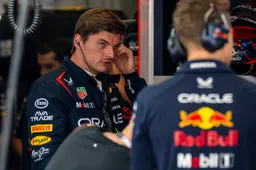
2
Kravitz warns Red Bull of bleak future as 'undriveable' car will 'finish last' without Verstappen
1078 times read
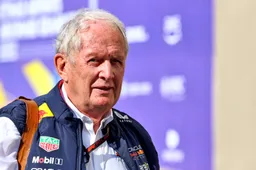
3
The internet erupts with intense speculation after image of Horner & Marko goes viral
978 times read

4
Timo Glock warns Red Bull that Verstappen "knows he's in the wrong car" amid Austria non finish
653 times read
